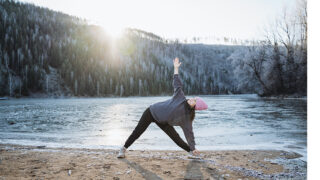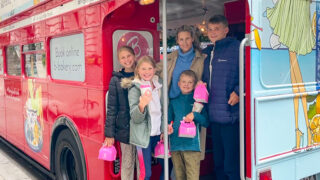Want to go on holiday to Australia? ‘Down Under’ is famous for its beautiful beaches, rugged outback, ancient indigenous culture, laid-back cities and towns, and an obsession with sport! But it’s a very big place, so you’ll find much more than just that. Before you go, read our mini guide for where to go in Australia; it has some views on particular destinations from EL staff and readers, plus a fact file on everything from money, weather and visas to some of the slang that’s handy to know!
Where to go in Australia
Driving the Queensland coast by campervan
Travellers: Kel and Michael Flanders, Australian; Avery (4) and Alexia (2)
After deciding to join our extended family on their Easter camping trip, we realised it would be more cost-effective (and more fun!) to hire a motorhome and drive from the Gold Coast to Airlie Beach. We opted for a six-berth campervan to give us a bit more space. The girls’ car seats were easily fitted (including Isofix points) to the forward-facing bench and off we set. I even surprised myself by driving on the first day!
It took us two days to get to Airlie; we loved the freedom of being able to pull over whenever we wanted and not having to wait for rest stops with fast food outlets. The girls also really loved being up high and seeing the amazing Australian countryside. The highlight of the trip was going to Cedar Creek Falls. Definitely a must-visit – the gorgeously cool fresh water and the roar of the very full waterfall were amazing!
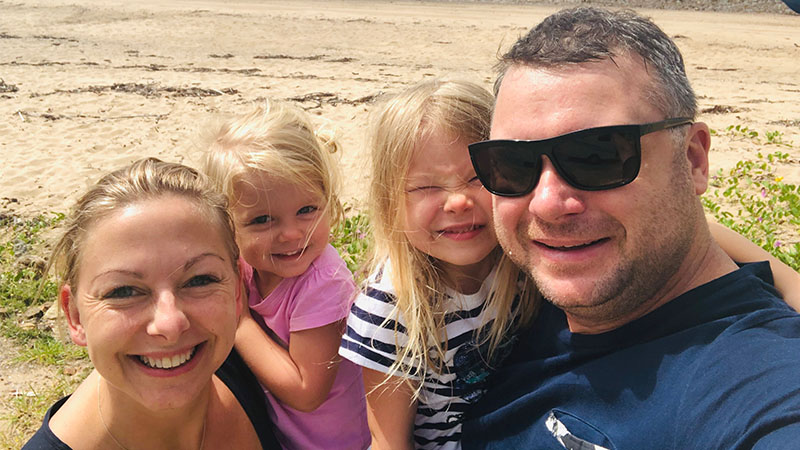
Holiday to Australia’s southwest coast
Travellers: Juliet and Jason Keys, English and Australian
The southwest coast of Australia is one of our family’s favourite holiday destinations, and we have visited numerous times. While you can do it as a short break, you do need longer to explore the region more thoroughly.
The drive along the coast road from the regional centre of Busselton, via the holiday towns of Dunsborough and Yallingup, through the world-famous surf beach of Margaret River and finishing at Augusta on Australia’s southwest corner, captures some of the most spectacular scenery in the world, and you feel a million miles away from the bustle of Singapore.
We usually stay in Dunsborough on Geographe Bay, which has a range of holiday accommodation options and a well-equipped shopping area. The turquoise waters are stunning and it’s the perfect place for families, whether it’s swimming, stand-up paddleboarding or fishing for dinner! There’s a great choice of restaurants and heaps to do with kids, from play parks and caves to animal farms and mazes.
A short drive around Cape Naturaliste to the Indian Ocean leads to some fantastic surf beaches where the white sands seem to stretch for miles. If the beach is not your thing though, there are plenty of other options, from exploring Margaret River town, known for its craft breweries, boutiques and world-class wineries, to coastal hiking trails and adventure tours. We particularly enjoyed kayaking on the beautiful Blackwood River.
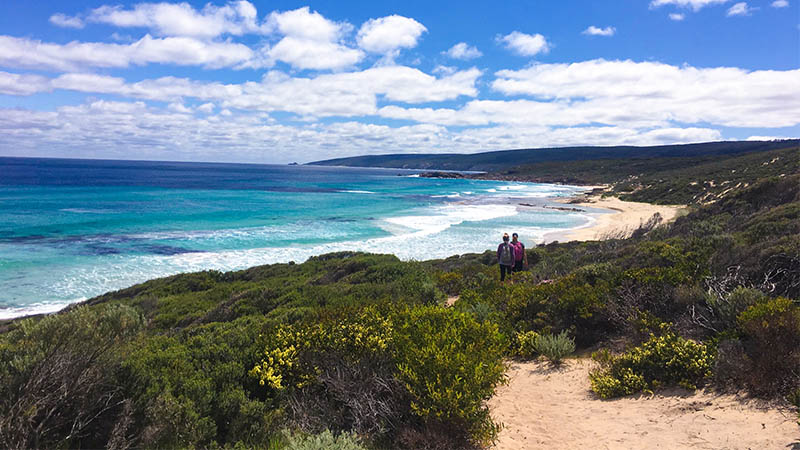
Visit Melbourne, the Great Ocean Road and a farmstay!
Traveller: Veena Bajaj, Singaporean
Many people choose Victoria for their holiday to Australia. The main highlight of our trip there was the coastal drive along the Great Ocean Road. Stops worth visiting along the way include Torquay for a surf on the beach, Port Campbell for fish and chips, and Kafe Koala at Kennett River for a chance to see wild koalas relaxing in their natural habitat. Also, don’t miss the famous Twelve Apostles rock formation and dropping by the Otway Harvest Trail, which highlights the best of the region, with local wineries, breweries, gourmet chocolatiers, fine cheese-crafters, home-made jam and spread makers, cafés and bakeries that use fresh organic produce.
We stayed at a genuine farm-stay accommodation called Johanna River Farm and Cottages, where we got up close to friendly sheep and llamas. We had a cosy cottage, perfect for two, with a lovely wood fireplace and a spacious patio. They also have larger cottages to suit families with kids and provide farm tours where you’ll get to feed animals, collect eggs from the chicken house and pick fruit from the orchard. If you’re lucky, you’ll spot some glow worms under the starry skies during night-time walks – or perhaps even a platypus! Owners Helen and Julian are fantastic hosts who are able to offer dining and recreational suggestions to suit your needs.
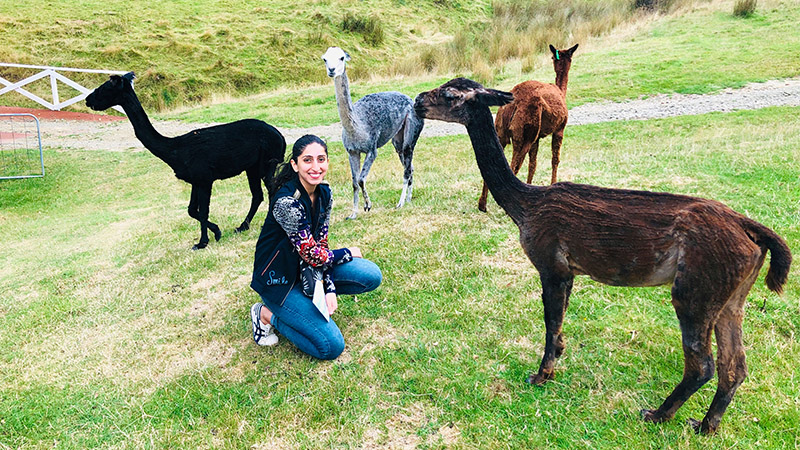
While in Melbourne, I recommend taking the tram up to St Kilda for an afternoon basking on the beach (provided the weather’s good!). The area has a chill indie vibe, offering a feel of the laid-back Australian culture. There are also loads of fabulous eateries and ice cream parlours (Piccolina Gelateria is a must-try for authentic Italian gelato) within walking distance of the beach.
Where to stay in the Dandenong Ranges, Victoria
Traveller: Monica Pitrelli, American
We visited the Dandenong Ranges, a one-hour drive from Melbourne, and rented a house through Valley Ranges Getaways. We travelled here with our three daughters, then aged six, four and three. The rental home was exquisite. It was as if Martha Stewart tossed you her house keys for a week – and we spent a good amount of time at the house eating charcuterie and cheese purchased from gourmet delis while the kids played in the shady three-acre yard. Despite the flight, this trip is easy for families, which is not a word I have ever connected to travelling with small kids. We dined at restaurants without reservations, parking was abundant, activities were close by and everyone was extremely friendly.
There are lovely restaurants in the mountain villages of Sassafras and Olinda, especially Proserpina Bakehouse (diet be gone!), King Henry Arts Cafe (wonderful playground for kids) and Brunch Cafe (best coffee and lovely owner). Healesville Sanctuary is an hour away, so you can get up close and personal with kangaroos, koalas and more. William Ricketts Sanctuary is a mossy hike through the forest to learn about one man’s dedication to preserving Aboriginal culture. Puffing Billy steam train is a must-do train ride, though we did miss it as there is so much to do – hikes, a kids’ maze, farmers’ markets, relaxing and letting the kids run around the yard. Once our holiday was over, I immediately booked the same house for the following year – a first!
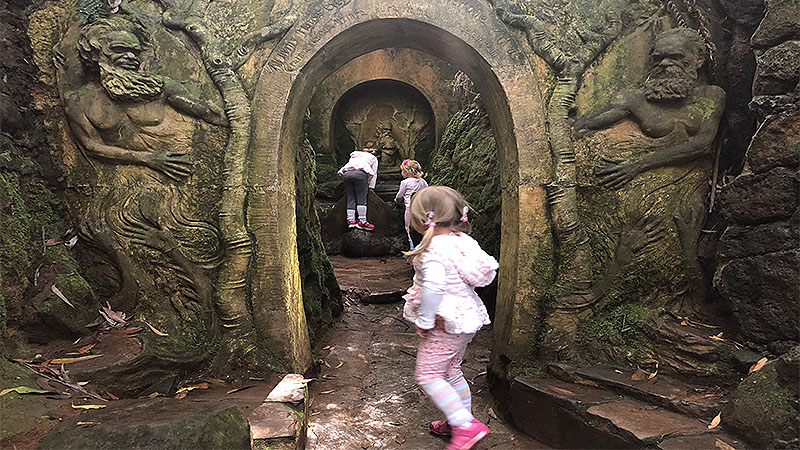
Most memorable moments of our holiday to Australia? The twilight feedings of the kookaburras that landed on our verandah every evening and the kids running semi-naked through the yard in the rain (their idea!).
Exploring the Mornington Peninsula, Victoria
Traveller: Matthew Elton, British
The beachside enclave of Point Leo is located on the stunning oceanside of the Mornington Peninsula. It’s just a 90-minute drive from Melbourne Airport, all on freeway until the last 20 minutes. It’s impossible to get lost but you do need a vehicle to make the most of the stunning area.
Point Leo has two beautiful and very different beaches between the “point”. There’s a calm sandy beach with plenty of shallow water and rock pools for kids – it’s perfect for exploring with a paddle board (you can rent one from iconic local surf shop Trigger Brothers), and a wider, dune-backed surf beach where you can watch the locals performing tricks.
Point Leo is a five-minute drive from the laid-back charming peninsula villages of Flinders and Red Hill. They have amazing fresh produce and farmers’ markets, and there are over 30 cellar doors to explore within a 30-minute drive, including some of Australia’s best, such as Crittenden, Polperro, Foxeys, Quealy and Rare Hare. I have a beach house that I rent on Airbnb: Tranquil Point Leo Beach House (@pointleobeachhouse). It’s a traditional cedar house with a couple of acres of lawns, a five-minute stroll from the sands.

There’s something magical and calming about sitting on the deck and looking at the stars, with the sound of the waves crashing down on the beach (ideally with a glass of Point Leo Estate Chardonnay in your hand). We love a regular holiday to Australia!
A Tasmania road trip with the family
Traveller: Rebecca Simpson, Australian
Imagine if your favourite family road trip from the 80s had a baby with the best food and wine holiday you had pre-kids. That baby is a Tasmanian family holiday! It’s good ol’ fashioned family fun, with a side of locally grown food and pit stops at cellar doors for delicious and affordable wine. Heaven.
We visited Tasmania in January, which is quite a busy time because it’s the Australian school holidays. But January is a beautiful time to go – warm days and cool nights. Two holiday highlights for our family were a farm stay at Twamley Farm and watching the penguins at Bicheno Diamond Island Resort and the Penguin Parade.
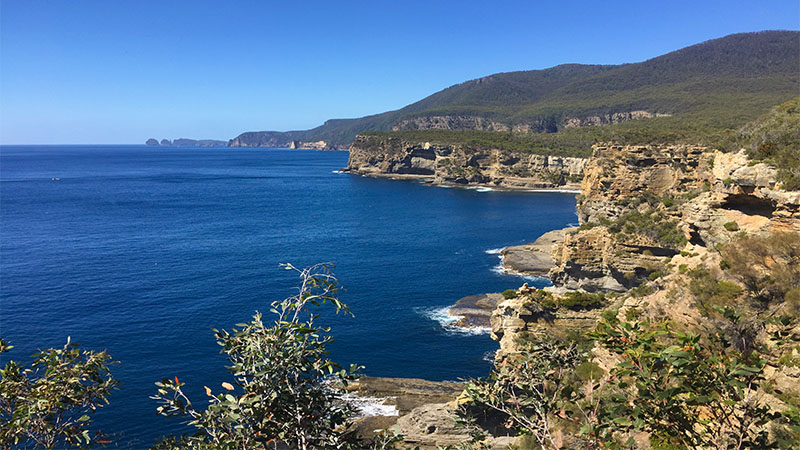
Here are three tips for this kind of holiday to Australia. Firstly, slow down as there’s a lot to do. In a do-over, I would stay an extra night at each place and cover less ground. Secondly, get your city-slicker kids reconnected to the land at a farmstay if you can. Thirdly, invest in a collapsible Esky to leave in the car. It’ll keep lunches fresh or side-of-the-road food purchases cold.
Where to stay in Albany, south of Perth
Traveller: Verne Maree, South African
If you’re in Western Australia and you have the time, why not drive to Albany for a few nights? It’s about 400 kilometres (4.5 hours) from Perth. Both Albany and neighbouring Denmark (50 kilometres west) feature picturesque bay after halcyon headland after idyllic, white-sand beach, with one sweeping vista after another – simply magnificent!
We stayed at the comfortable and reasonably priced Dog Rock Motel. It’s just a couple of minutes’ walk from Albany town centre, and its Lime 303 restaurant was outstanding. It’s also just a five-minute drive from there to lovely Middleton Beach and also to the scenic old port. For me, the highlight was the nearby Torndirrup National Park and its impressive geological formations – The Gap and The Bridge. Full marks for the site’s safe accessibility via paths and viewing platforms, plus explanatory signage.
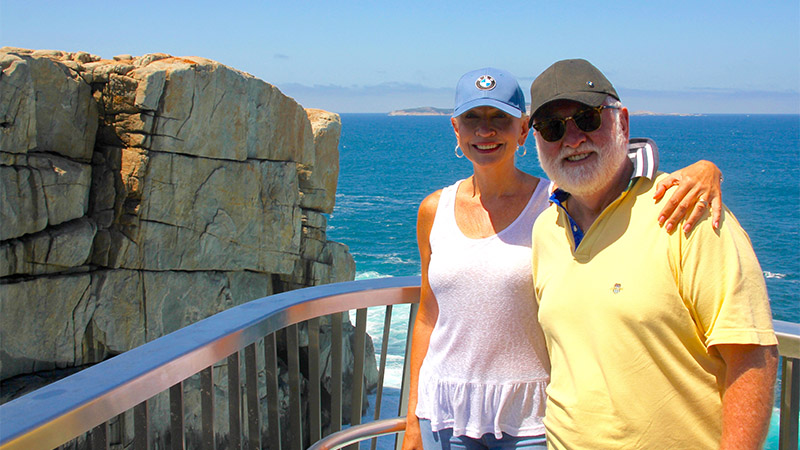
Albany is both geographically gifted and historically significant, so don’t leave this holiday to Australia without visiting Anzac Heritage Park and its state-of-the-art National Anzac Centre.
# AUSTRALIA HOLIDAY TIPS
The Basics
Population: 26 million
Capital: Canberra
Religion: Predominantly Christian
Emergency number: 000

Fact file
- Australians eat both animals that feature on their coat of arms: the kangaroo and the emu.
- The world’s largest urban Greek population outside of Athens is in Melbourne.
- Australia’s unique football code, Aussie Rules, is believed to be based on the Aboriginal game of Mangrook.
- When Sydney and Melbourne couldn’t stop fighting over which of them should be the capital city, Canberra was selected instead. Despite the rumours, though, it’s not halfway between the two cities – it’s much closer to Sydney.
Key dates
- 26 January: Australia Day; though there is controversy about the date, this is the country’s official national day.
- 25 April: Anzac Day, marking the anniversary of the major WWI military conflict at Gallipoli involving troops from Australia and New Zealand.
- First Tuesday in November: Melbourne Cup, the horse race that “stops a nation”.
- 31 December: New Year’s Eve is always done in style, and with plenty of fireworks.
Itineraries and where to go in Australia
Popular destinations include Sydney, Melbourne, the Gold Coast, the Whitsundays, Tasmania, Byron Bay and Alice Springs. Among the 19 World Heritage Sites are Kakadu, the Great Barrier Reef, Uluru and the Sydney Opera House.

Some itinerary ideas
- Sun and surf: Brisbane – Sunshine Coast – Cairns – Great Barrier Reef
- Cool capitals: Sydney – Melbourne – Great Ocean Road
- Outback: Darwin – Kakadu – Alice Springs – Uluru
- Food and wine: Perth – Fremantle – Margaret River
Staying safe and healthy on your holiday to Australia
Firstly, pack plenty of factor 50+ sunscreen, wear a hat, and avoid spending too long outside in the middle of the day; the Aussie sun can be brutal! If you’re driving in remote areas, tell someone where you’re going, and carry much more water than you think you’ll need. If you’re on the beach, follow the safety instructions applied by the lifeguards.
Do’s and don’ts
While you’re there, please don’t…
- Touch any of the native flora or fauna without knowing what it is first! Australia justifiably has a reputation for having lots of creepy crawlies and other nasties. Case in point: 20 of the 25 most venomous snakes in the world are found in Australia.
- Attempt to swim in rough conditions at any of the country’s beaches. Drownings are common – sadly, particularly among foreigners who fail to spot rips and sweeps.
Before you go, read …
- The Secret River, Kate Grenville – absorbing historical novel about an early 19th-century Englishman transported to Australia for theft.
- Dark Emu by Bruce Pascoe – an attempt to reexamine colonial accounts of Aboriginal people in Australia; read the book (2014), but also take a look at the equally instructive debate about its merits (which still rages in 2022).
- The Shiralee by Darcy Niland – follows a father’s journey across New South Wales, and captures the spirit of the outback.
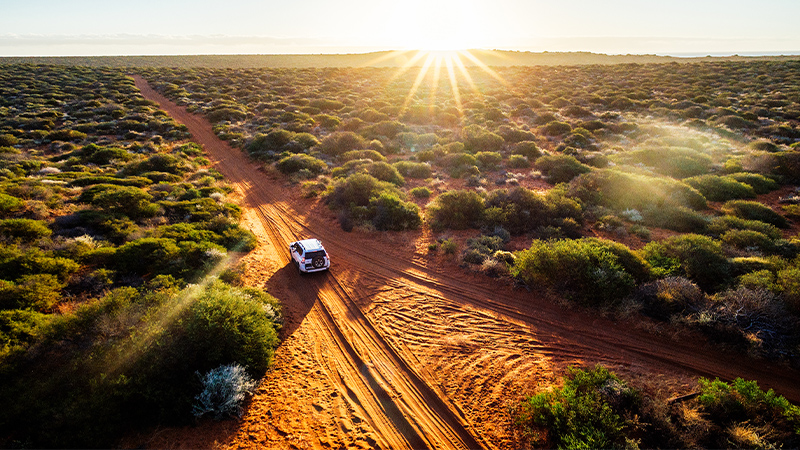
Before you go, watch …
- The Castle – filmed on minuscule budget, this comedy of a family trying to prevent their home from being demolished is loved (and heavily quoted) by locals.
- Mad Max – for an eye-opening view of a dystopian Australian future.
- Also, if you plan on doing a driving holiday in the Outback, Wolf Creek is a film you shouldn’t watch before you go!
They said it
“If I was whisked away…I think I could put up with anything, except not seeing the Australian landscape. It would be torture to have it cut off.” – Arthur Boyd, Australian painter
“Let no-one say the past is dead; the past is all about us and within.” – Oodgeroo of the tribe Noonuccal
“You don’t really understand what makes the Australian nation tick unless you understand the great affection Australians have for sport.” – Former Prime Minister John Howard
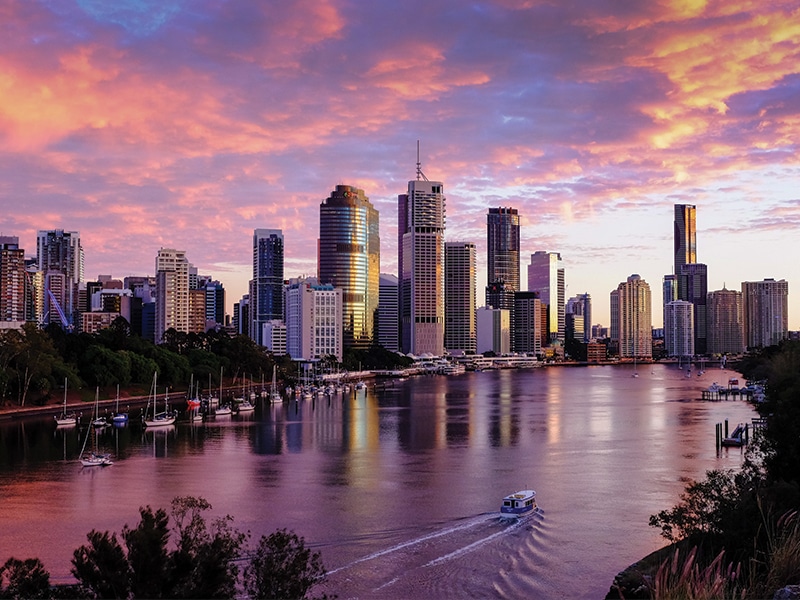
Important questions
Do I need a visa?
Unless you’re an Australian or New Zealand citizen, you’ll need a visa or Electronic Ticket Authority (ETA) to enter the country. NZ passport holders can apply for a visa upon arrival. For more detailed info regarding what type of visa you require, go to homeaffairs.gov.au.
What time is it in Australia?
Australia has several time zones. You can be 8 hours ahead of GMT, if you’re in Perth, or 10 or 11 hours, if you’re in Sydney (depending on daylight savings periods).
What’s the money situation?
The Australian dollar (AUD) is the national currency of Australia. Foreign currency and travellers’ cheques can be changed at most banks or licenced money changers. Credit cards are widely accepted and ATMs are readily available.
When’s the best time to visit?
Australia has four seasons, but the climate can vary greatly due to the size of the continent – check your destination before you go. The north generally has warm to hot weather year-round, while southern states experience cooler winters. Remember, too, that the seasons are opposite to the northern hemisphere, so Christmas is in the summertime.

What’s the lingo?
English. Still, you may find yourself failing to understand a conversation or two thanks to the heavy use of Australian slang (or “Strine”). Here are some phrases that you might hear now and then, especially away from the cities.
- Fair dinkum: The real thing
- Having a Barry: Not going well
- Flat out like a lizard drinking: Busy at work
- Bludger: Lazy person
- Woop Woop / the back of Bourke: A long way away (like Singapore’s word “ulu“)
Last but not least
Is there anything I should know about meeting the locals?
With five million immigrants from 160 countries, Australia has a rich cultural diversity, which generally means its people are friendly and relaxed around visitors. In fact, communication can be quite direct: first names are often used immediately, even for strangers, and there’s a tendency to get straight to the point. (Or to put it in Strine: there’s no beating around the bush!)
What’s a must-try dish?
A meat pie. You don’t always get a good one, but when you do it’s a memorable thing. Be sure to add lashings of “dead horse” (tomato sauce).
What should I buy as a souvenir?
Food-wise, it’s hard to go past a jar of Vegemite or a packet of Tim Tams – and a couple of bottles of Australia’s world-class wine, of course. Other than that, a didgeridoo or boomerang, or a clothing product made of leather or sheep’s wool.
Keen to read more? Head to our Travel section!



